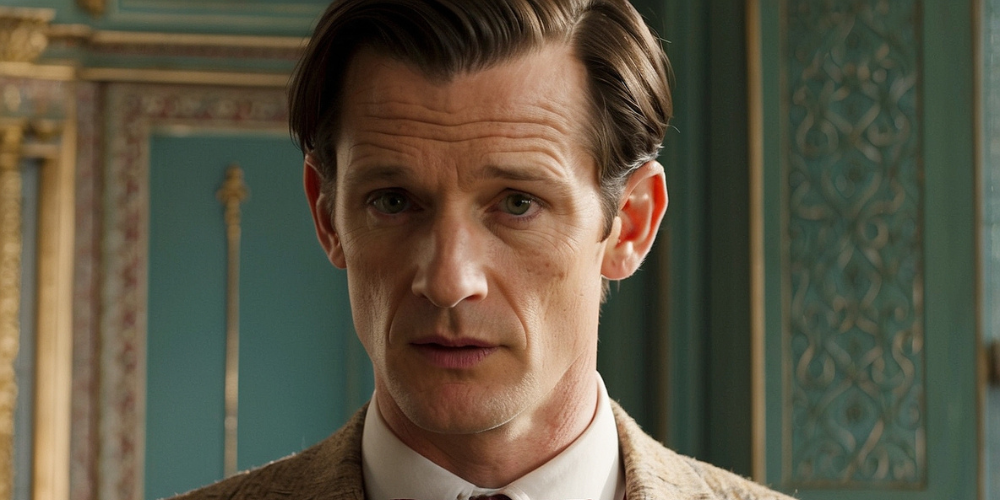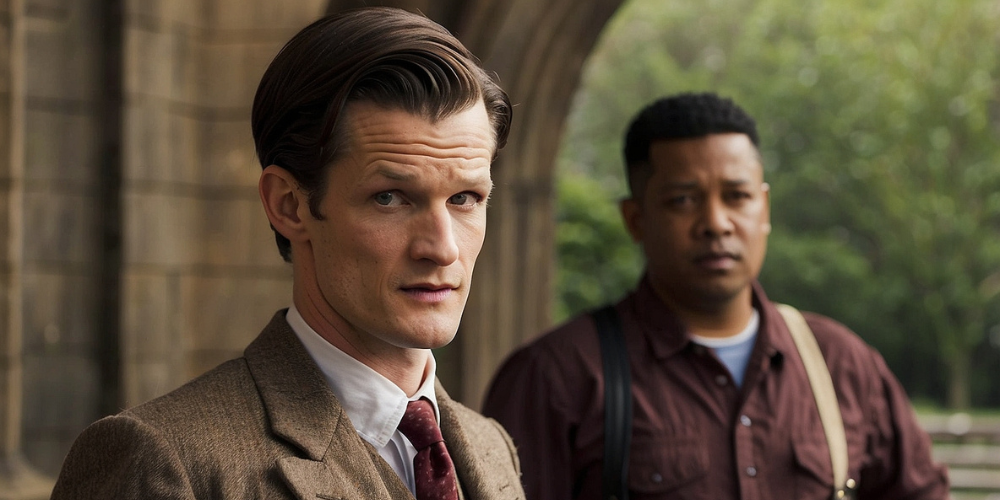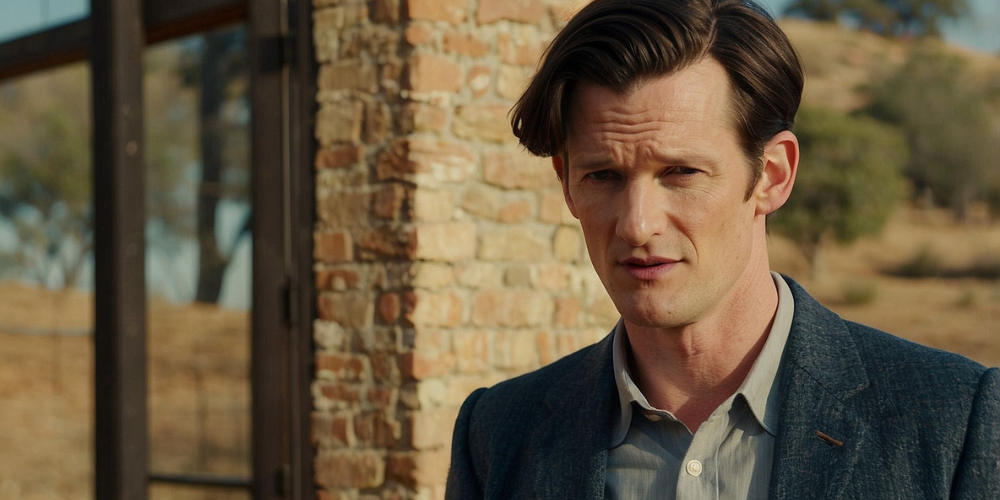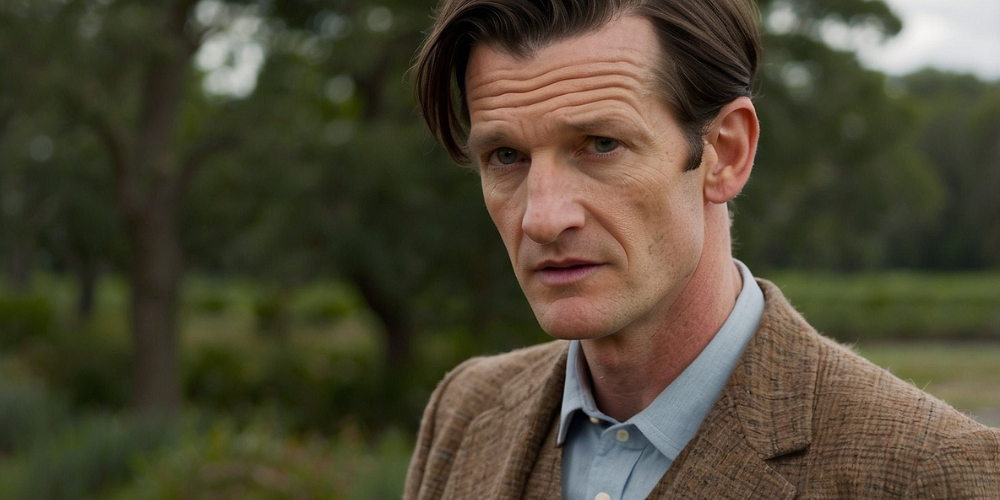Navigating Complexity: Matt Smith's Call for Authentic Storytelling in a Censored World
- Nov 25, 2024
- 0

In an age where social sensitivities and cultural reflection increasingly mold our entertainment landscape, Matt Smith stands as a vanguard of complexity and moral ambiguity in storytelling. Smith, renowned for his role as Daemon Targaryen in the HBO show House of the Dragon, epitomizes the artist's struggle against the tightening grip of cancel culture and censorship. As he embraces roles that challenge societal norms, he openly critiques a culture that, in his view, can inhibit genuine expression and raw narrative power. In this exploration of his career and artistic philosophy, we delve into his thoughts on the evolving nature of storytelling, the necessity of flawed characters, and the vital importance of freedom in creative endeavors.
Confronting Complexity in Characters
Matt Smith has consistently chosen to embody characters who cannot be easily categorized as either heroes or villains, but multifaceted individuals. His portfolio reflects an unwavering commitment to playing roles that engage with moral prefixes, often residing in the grey areas of human experiences. From the troubled Prince Philip to the enigmatic Daemon, he thrives on exploring the complexities that come with deeply flawed individuals, rendering him a masterful actor.

The Allure of Villains
Why does Smith resonate with these darker roles? It appears that the vibrant spectrum of human emotion and failure intrigues him. Audiences seem fascinated as well, leading to a resurgence of interest in stories that center on antiheroes and villains. Smith believes that villainy often lays bare the human condition in fascinating and sometimes uncomfortable ways.
Career Trajectory Post-Doctor Who
Having transitioned from the family-friendly milieu of Doctor Who, Smith embraced more nuanced and morally ambiguous roles. He reflects on this journey with clarity, indicating that he strategically sought out projects that would allow him to express his evolving artistic temperament fully. This daring leap into complex roles has both challenged and excited his fans.
Striking a Balance with Provocation
Crafting art that provokes thought often invites scrutiny. Smith openly challenges the prevailing climate, expressing a desire for storytelling that doesn’t shy away from discomfort. He believes that true artistry flourishes when creators are permitted to explore contentious themes without the threat of excessive censorship.
Feeling Stifled by Censorship
In his interviews, Smith has suggested that the current climate of cancel culture can stifle creative expression. His discomfort with trigger warnings and story policing reflects a broader anxiety within the artistic community. Smith values the innate power of storytelling to evoke a spectrum of emotions, including discomfort and provocation.
The Art of Discomfort

Smith contends that stories should challenge viewers rather than coddle them. This belief resonates especially in today's complex social landscape. He argues that encountering uncomfortable themes can stimulate cognitive and emotional growth within audiences, compelling them to reflect on their beliefs and assumptions.
Personal Experiences with Provocative Arts
Drawing from personal experience, Smith recalls engaging with provocative films during his childhood that left a lasting impression. These experiences shaped his view on art, illustrating the benefits of confronting challenging narratives rather than shying away from them. He advocates a broader exposure to varied forms of storytelling, embracing their raw and emotional landscapes.
The Role of Trigger Warnings
Today’s environment puts a spotlight on emotional safety through the use of trigger warnings. However, Smith questions their effectiveness and necessity, suggesting they may detract from the beauty and complexity of storytelling. He believes an important part of art is its ability to elicit intense responses, regardless of being favorable or unfavorable.
Modern Audiences and Expectation
The current expectations of audiences can create a paradox where art struggles to fulfill its purpose. According to Smith, the expectation that content will be easily digestible and safe can dilute its power. He urges for a reevaluation of what it means to engage with art, encouraging audiences to embrace complexity rather than fear it.
The Importance of Authentic Representation

Authenticity in storytelling—where characters are not only relatable but also reflect the multifaceted nature of life—is essential to connect with audiences. Smith argues that characters should not be sanitized or softened for comfort; instead, they should be allowed to exist in their entirety, reflecting their true essences regardless of societal norms.
Freedom to Create
As a passionate advocate for artistic freedom, Smith believes that creators must have the clarity to express unfiltered narratives. This includes exploring darker themes and morally gray characters. He yearns for a resurgence of bold storytelling that unapologetically portrays the intricacies of the human experience.
A Glimpse into the Future of Creativity
The conversation around creativity, cancel culture, and censorship is ongoing, and Matt Smith provides a compelling perspective in this discourse. He envisions a future where storytellers can push boundaries and challenge audiences without fear of backlash, fostering a culture of art that reflects life’s complexities.
Lessons from House of the Dragon
Smith’s role in House of the Dragon serves as an important platform to examine these ideas. The series encapsulates the nuances of ambition, morality, and human frailty, reflecting the very themes Smith champions. As audiences engage with such narratives, they might find themselves compelled to rethink their views on discomfort in art.
Final Reflections

As the ongoing dialogue about cancel culture continues, it will be vital for artists like Matt Smith to challenge the status quo. Art should remain an avenue for exploration, confrontation, and expression, not a sanitized experience. By embracing discomfort and complexity, both creators and audiences can participate in a richer, more engaging narrative landscape.
The Legacy of Bold Storytelling
Ultimately, the evolution of storytelling will hinge on a collective willingness to embrace the range of human experience. As Smith navigates his career, the hope is that both artists and audiences can hold onto the adventurous spirit of storytelling, ensuring that the essence of authentic, bold narratives persists for years to come.
As fans await the next chapters of House of the Dragon, the underlying themes articulated by Smith resonate long after the credits roll—reminding us of the profound power inherent in storytelling and the necessity to maintain its integrity in a complex and evolving world.